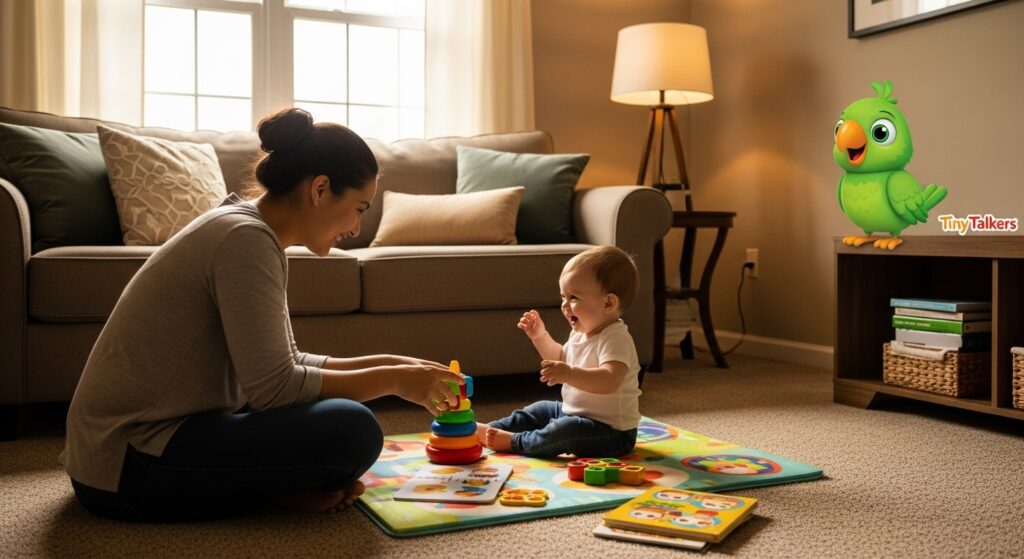In the journey of nurturing young children, understanding the nuances of how they develop their communication skills can be both fascinating and essential. One of the most critical components in this developmental process is the ability to listen. Listening is much more than just hearing words; it’s about interpreting and understanding the nuances of language, tone, and emotion. These skills lay a foundation for effective communication and cognitive growth.
Understanding Listening Skills
What Are Listening Skills?
Listening skills encompass the ability to accurately receive and interpret messages during the communication process. For toddlers, developing these skills means they can better understand and respond to what is being said to them. This ability is crucial in building their vocabulary, enhancing their comprehension, and fostering their overall language development.
The Connection Between Listening and Speech
The relationship between listening and speech is symbiotic. As toddlers listen to sounds, words, and sentences, they begin to make connections between these auditory inputs and their meanings. This connection helps them in forming their own words and sentences. Without effective listening skills, a child’s ability to articulate and express themselves can be significantly hindered.
The Importance of Listening in Early Childhood
Building Blocks for Language
Listening is the first step in language acquisition. From the moment they are born, children are tuned into the sounds around them. They listen to the rhythm and melody of language before they even understand the words. This early exposure helps them distinguish between different sounds and eventually associate them with meanings, which is critical for speech development.
Enhancing Cognitive Development
Listening also plays a vital role in cognitive development. It helps toddlers process information, follow instructions, and develop problem-solving skills. By listening, they can learn new concepts and ideas, making it easier for them to absorb information and apply it in various contexts.
Encouraging Effective Listening Skills
Create a Language-Rich Environment
One of the most effective ways to enhance a toddler’s listening skills is by creating a language-rich environment. This can involve:
- Reading Aloud: Regularly reading books to your child exposes them to new vocabulary and sentence structures.
- Engaging Conversations: Talk to your child about everyday activities, describe what you are doing, and ask open-ended questions to encourage dialogue.
- Listening to Music: Songs and nursery rhymes are excellent tools for teaching rhythm and intonation, which are crucial components of language.
Active Listening Techniques
Modeling active listening is another powerful way to encourage these skills in toddlers. Show them that listening is important by giving them your full attention when they speak, maintaining eye contact, and responding thoughtfully to what they say. This not only teaches them how to listen but also makes them feel valued and understood.
Encourage Play-Based Learning
Play is a natural and effective way for toddlers to develop listening skills. Games that involve following instructions, such as “Simon Says,” or activities that require focusing on different sounds, can be both fun and educational.
Common Challenges and Solutions
Short Attention Spans
It’s not uncommon for toddlers to have short attention spans, which can make listening challenging. To address this, keep instructions simple and clear. Break down tasks into smaller, manageable steps, and use visual aids or gestures to reinforce what you are saying.
Distractions
In a world full of distractions, it can be difficult for toddlers to focus on listening. Limiting background noise and finding a quiet space for conversations and activities can help improve their ability to concentrate and listen actively.
Hearing Impairments
Sometimes, children may have difficulty listening due to hearing impairments. If you suspect any issues, it is important to consult with a healthcare professional to ensure your child receives the appropriate support and interventions.
Professional Support for Listening and Speech
Speech-Language Therapists
If you have concerns about your child’s listening or speech development, consulting a speech-language therapist can be beneficial. These professionals can assess your child’s abilities and provide tailored strategies to support their growth.
Early Intervention Programs
Early intervention programs can offer resources and support for children with speech and language delays. Engaging with these programs early can make a significant difference in your child’s communication skills.
Conclusion
The journey of developing listening skills is an integral part of a child’s speech and language development. By fostering a supportive and engaging environment, parents can help their toddlers build strong listening skills, setting the foundation for effective communication and cognitive growth. Remember, every child develops at their own pace, and with patience and encouragement, your little one will continue to thrive. Embrace the small victories along the way, knowing that each step forward is a significant milestone in their communication journey.

